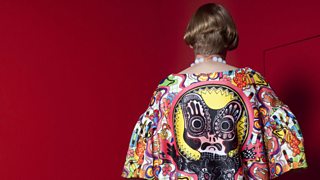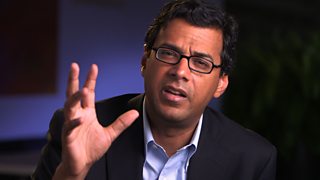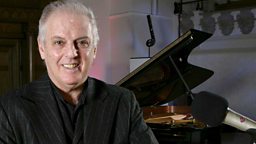The Reith Lectures - New to the Reith Lectures? Here’s where to start (original) (raw)
New to the Reith Lectures? Here’s where to start
By Jim Frank, Reith Lectures producer
The Reith Lectures used to have a lofty, high-brow reputation. But don’t let that old-fashioned view put you off: there’s something here for everyone.
In the era of 24-hour news and (reportedly) shortened attention spans, this series gives rare space and time for brilliant and entertaining people to develop their ideas and arguments.
If you’ve never heard a Reith Lecture, this is what you’ll get: a presentation which is a bit longer than a TED talk, followed by a lively question-and-answer session where the lecturers have no idea what they’re going to be asked. It’s often in these exchanges that you really hear the lecturers show their expertise, wisdom and wit.
Here are some places where you might like to start:
Grayson Perry (2013) – Playing to the Gallery
The artist Grayson Perry used his series to scrutinise the art world in characteristically hilarious and provocative fashion.
He asked if anything now can be art following Marcel Duchamp’s declaration that a urinal was art. And he asked how anyone can really judge whether a work of art is good or not.
Grayson has genuine star quality and is a great showman, so the recordings reflect him as a wonderful live performer. It’s hugely entertaining and thought-provoking terrain.
The third lecture, Nice Rebellion, Welcome In, recorded in front of a great audience in Derry/Londonderry, captures the buzz around this series.

Preview: Grayson Perry's Reith Lectures.

Hilary Mantel (2017) – Resurrection: The Art and Craft
As you might expect, Hilary Mantel’s lectures are gorgeously written, in wonderful, surprising prose filled with rich metaphor.
In her series, she looks at the role that history plays in our lives, arguing that art can bring the dead back to life. "We sense the dead have a vital force still," she says. "They have something to tell us, something we need to understand. Using fiction and drama, we try to gain that understanding."
She describes how and why she began to write fiction about the past, and how her view of her trade has evolved. We cannot hear or see the past, she says, but “we can listen and look”.
If you’re interested in history and how we see history, listen to these.

Hilary Mantel challenges the view that historical novels are misleading.

Atul Gawande (2014) – The Future of Medicine
Atul Gawande’s lectures are full of powerful stories from his life as a doctor, surgeon and thinker.
At the heart of his series are ideas about why doctors fail and what medicine can do to improve things for patients, especially those who may be nearing the end of their lives.
Terminal illness and how we die are difficult subjects to discuss but Atul argues that the medical profession needs to be more honest about these conversations. Happily, Atul is a superlative storyteller, who will definitely draw you in.
In lecture 2, The Century of the System, Atul tells the amazing story of a girl whose life was saved when many had assumed she had died after falling into water.

Atul Gawande says there are three reasons why doctors sometimes fail.

Daniel Barenboim (2006) – In the Beginning was Sound
Another great showman, the pianist and conductor Daniel Barenboim explored our relationship with music in his 2006 series.
Why is music so powerful and why does it bring so many of us together?
In 1999, Barenboim formed the West–Eastern Divan Orchestra, comprising equal numbers of Israeli and Arab musicians, showing it was possible for music to overcome difference and for people to work and live in peace. “Music makes sense of the world,” he said.
A great communicator, Barenboim was at his brilliant and charismatic best during the Q and A in the first lecture.
